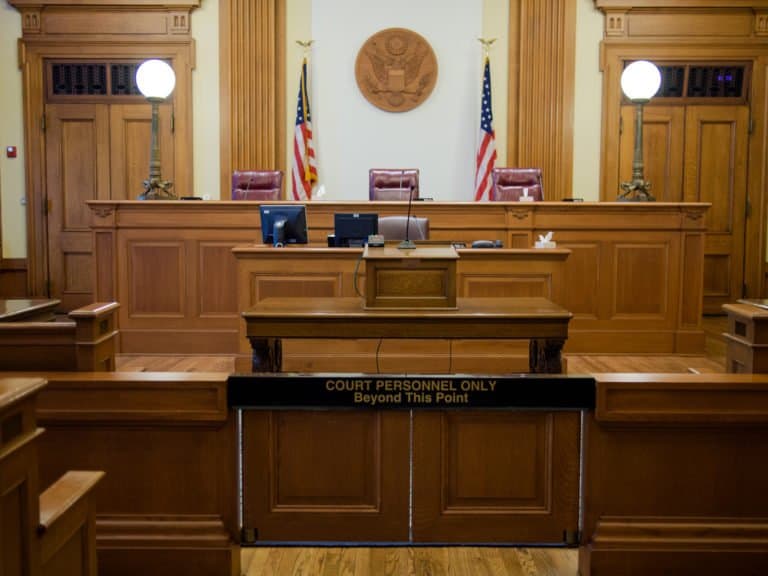
Sharon Block is a Professor of Practice and the Executive Director of the Center for Labor and a Just Economy at Harvard Law School.
Jim Tierney is director of the Government Lawyer – State Attorney General Clinic at Harvard Law School and the director of StateAG.org, which is an educational resource on the office of state attorney general. Mr. Tierney served as the Attorney General of Maine from 1980 until 1990.
Fighting the dangers of tobacco, seeking redress for homeowners during the mortgage crisis, and most recently standing up against the Muslim ban – state attorneys general have long been at the forefront of efforts to protect the well-being of the people of their states. In recent months, progressive state attorneys general have emerged as some of the nation’s foremost champions of civil rights and of humane, sensible policy in the face of declining protection at the federal level. As income inequality grows and too many American workers struggle to get a fair deal in our economy, the role of state attorneys general in enforcing statutes that protect workers’ economic interests has taken on new importance. To build on the energy and expertise of these public servants, under the auspices of the Labor and Worklife Program at Harvard Law School, we recently hosted attorneys from the offices of 11 state attorneys general last week to discuss strategies and best practices for enforcing labor laws.
The meeting came at an important moment in the evolution of state attorney general involvement in labor issues. State attorneys general have long been involved in filing multi-state amicus briefs in Supreme and Circuit Court cases, such as Friedrichs v. California Teachers Association, the landmark case threatening to undermine the right to collective bargaining for public sector workers, but enforcing state labor laws has not traditionally been a focus of state attorneys general, except in a handful of key states like California, Illinois, Massachusetts, and New York.
These states have shown that state attorneys general can play a role in protecting workers and enforcing labor laws, including wage and hour, prevailing wage, and anti-retaliation statutes. For example, in the meeting at LWP, lawyers from these offices highlighted case studies of several ongoing and resolved lawsuits involving violations of low-wage workers’ rights. Case studies included lawsuits against:
- a fast food sandwich chain for its overly broad use of non-compete agreements (Illinois);
- Chinese restaurants for wage underpayments and targeting Latino workers (Illinois);
- a port trucking company that misclassified drivers (California);
- a pizza delivery company and three of its franchisees as joint employers responsible for minimum wage and overtime violations (New York); and
- a commercial laundry and the employment agency that supplied it with workers as joint employers responsible for wage underpayments (Massachusetts).
The lawyers gathered at LWP also discussed last year’s collaborative effort in which nine state attorneys general wrote to a number of national retailers regarding their use of on-call shifts; all of the companies that were using such practices agreed to stop in response to the multistate inquiry.
In response to the growing challenges for American workers, especially low-wage workers, the number of state attorney general offices engaged in enforcement of labor laws and protection of workers is growing. The expansion of the effort by state attorneys general to protect vulnerable workers brings more than just additional bodies to the enforcement table. State attorneys general often have broad jurisdiction and the ability to use a range of statutes to address unlawful conduct, thereby complementing the work of primary regulators such as state labor departments and workers’ compensation agencies. We hope that our efforts to create a network of dedicated public servants and leaders with a common purpose and shared goal of protecting workers will facilitate their efforts to bring more innovation and effectiveness to worker protection enforcement at the state level.








Daily News & Commentary
Start your day with our roundup of the latest labor developments. See all
March 3
In today’s news and commentary, Texas dismantles their contracting program for minorities, NextEra settles an ERISA lawsuit, and Chipotle beats an age discrimination suit. Texas Acting Comptroller Kelly Hancock is being sued in state court for allegedly unlawfully dismantling the Historically Underutilized Business (HUB) program, a 1990s initiative signed by former Governor George W. Bush […]
March 2
Block lays off over 4,000 workers; H-1B fee data is revealed.
March 1
The NLRB officially rescinds the Biden-era standard for determining joint-employer status; the DOL proposes a rule that would rescind the Biden-era standard for determining independent contractor status; and Walmart pays $100 million for deceiving delivery drivers regarding wages and tips.
February 27
The Ninth Circuit allows Trump to dismantle certain government unions based on national security concerns; and the DOL set to focus enforcement on firms with “outsized market power.”
February 26
Workplace AI regulations proposed in Michigan; en banc D.C. Circuit hears oral argument in CFPB case; white police officers sue Philadelphia over DEI policy.
February 25
OSHA workplace inspections significantly drop in 2025; the Court denies a petition for certiorari to review a Minnesota law banning mandatory anti-union meetings at work; and the Court declines two petitions to determine whether Air Force service members should receive backpay as a result of religious challenges to the now-revoked COVID-19 vaccine mandate.